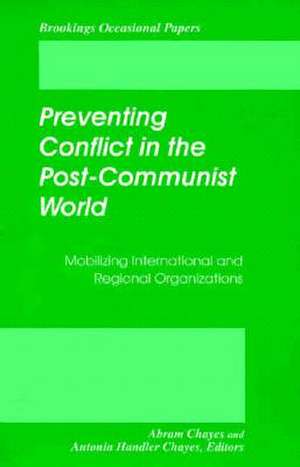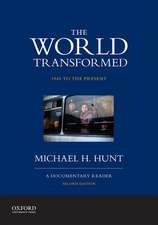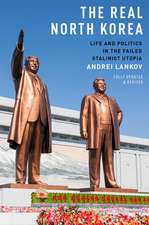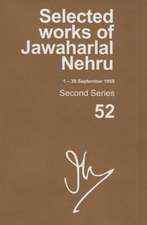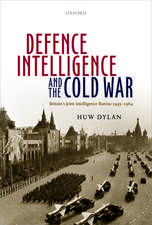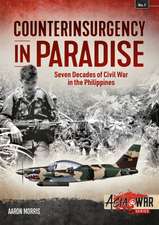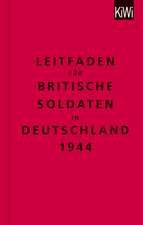Preventing Conflict in the Post-Communist World: Mobilizing International and Regional Organizations
Editat de Abram Chayes, Antonia Handler Chayesen Limba Engleză Paperback – dec 1995
Western politicians, pundits, and the public were wholly unprepared for the violent conflicts erupting in eastern and central Europe and the former Soviet Union after the end of the Cold War. The governments emerging from communism lack both the authoritarian control to suppress domestic differences and the democratic power to manage them.
Old conflicts resurfaced and new ones were kindled in virulent form from Bosnia to Chechnya. The stability of governments and the status quo of borders have been thrown into question. Actual and threatened disintegration of states in the area is widespread. No reference points have emerged to replace the cold war paradigm. Nor is there a way of knowing which conflicts can be contained within accepted borders and which may spill over. The prospect not only of widening conflict, but also of new precedents challenging old certainties of international life, causes deep concern in western Europe and the United States.
Europe has many experienced international organizations under whose umbrella states organize to achieve common purposes. This book asks how they have performed that function. How are these organizations attempting to deal with the many forms of internal conflict that are both the cause and the result of the end of communism and the East-West confrontation? Despite significant organizational and financial resources, the results have been meager. The authors show how difficult it is to achieve effective joint action on a sustained basis. They contend that a concerted effort to discover how to achieve joint action is the necessary next step in mobilizing international organizations for preventing ethno-national conflict.
In addition to the editors, the contributors are Diana Chigas, Jarat Chopra, Michael W. Doyle, Keitha Sapsin Fine, David S. Huntington, Christophe Kamp, Jean E. Manas, Elizabeth McClintock, John Pinder, Wolfgang H. Reinicke, Reinhardt Rummel, Melanie H. Stein, Shashi Tharoor, Thomas G. Weiss, Richard Weitz, and Mario Zucconi.
A Brookings Occasional Paper
Old conflicts resurfaced and new ones were kindled in virulent form from Bosnia to Chechnya. The stability of governments and the status quo of borders have been thrown into question. Actual and threatened disintegration of states in the area is widespread. No reference points have emerged to replace the cold war paradigm. Nor is there a way of knowing which conflicts can be contained within accepted borders and which may spill over. The prospect not only of widening conflict, but also of new precedents challenging old certainties of international life, causes deep concern in western Europe and the United States.
Europe has many experienced international organizations under whose umbrella states organize to achieve common purposes. This book asks how they have performed that function. How are these organizations attempting to deal with the many forms of internal conflict that are both the cause and the result of the end of communism and the East-West confrontation? Despite significant organizational and financial resources, the results have been meager. The authors show how difficult it is to achieve effective joint action on a sustained basis. They contend that a concerted effort to discover how to achieve joint action is the necessary next step in mobilizing international organizations for preventing ethno-national conflict.
In addition to the editors, the contributors are Diana Chigas, Jarat Chopra, Michael W. Doyle, Keitha Sapsin Fine, David S. Huntington, Christophe Kamp, Jean E. Manas, Elizabeth McClintock, John Pinder, Wolfgang H. Reinicke, Reinhardt Rummel, Melanie H. Stein, Shashi Tharoor, Thomas G. Weiss, Richard Weitz, and Mario Zucconi.
A Brookings Occasional Paper
Preț: 263.36 lei
Nou
Puncte Express: 395
Preț estimativ în valută:
50.39€ • 52.75$ • 41.94£
50.39€ • 52.75$ • 41.94£
Carte tipărită la comandă
Livrare economică 31 martie-14 aprilie
Preluare comenzi: 021 569.72.76
Specificații
ISBN-13: 9780815713852
ISBN-10: 0815713851
Pagini: 605
Dimensiuni: 152 x 229 x 33 mm
Greutate: 0.82 kg
Ediția:New.
Editura: Brookings Institution Press
Colecția Brookings Institution Press
Locul publicării:United States
ISBN-10: 0815713851
Pagini: 605
Dimensiuni: 152 x 229 x 33 mm
Greutate: 0.82 kg
Ediția:New.
Editura: Brookings Institution Press
Colecția Brookings Institution Press
Locul publicării:United States
Notă biografică
Abram Chayes was professor of law at Harvard University for over 40 years. He served as legal adviser to the State Department during the Kennedy Administration. Antonia Handler Chayes is director and senior advisor of the Conflict Management Group. She is a former undersecretary of the U.S. Air Force.
Descriere
Western politicians, pundits, and the public were wholly unprepared for the violent conflicts erupting in eastern and central Europe and the former Soviet Union after the end of the Cold War. The governments emerging from communism lack both the authoritarian control to suppress domestic differences and the democratic power to manage them.
Old conflicts resurfaced and new ones were kindled in virulent form from Bosnia to Chechnya. The stability of governments and the status quo of borders have been thrown into question. Actual and threatened disintegration of states in the area is widespread. No reference points have emerged to replace the cold war paradigm. Nor is there a way of knowing which conflicts can be contained within accepted borders and which may spill over. The prospect not only of widening conflict, but also of new precedents challenging old certainties of international life, causes deep concern in western Europe and the United States.
Europe has many experienced international organizations under whose umbrella states organize to achieve common purposes. This book asks how they have performed that function. How are these organizations attempting to deal with the many forms of internal conflict that are both the cause and the result of the end of communism and the East-West confrontation? Despite significant organizational and financial resources, the results have been meager. The authors show how difficult it is to achieve effective joint action on a sustained basis. They contend that a concerted effort to discover how to achieve joint action is the necessary next step in mobilizing international organizations for preventing ethno-national conflict.
In addition to the editors, the contributors are Diana Chigas, Jarat Chopra, Michael W. Doyle, Keitha Sapsin Fine, David S. Huntington, Christophe Kamp, Jean E. Manas, Elizabeth McClintock, John Pinder, Wolfgang H. Reinicke, Reinhardt Rummel, Melanie H. Stein, Shashi Tharoor, Thomas
Old conflicts resurfaced and new ones were kindled in virulent form from Bosnia to Chechnya. The stability of governments and the status quo of borders have been thrown into question. Actual and threatened disintegration of states in the area is widespread. No reference points have emerged to replace the cold war paradigm. Nor is there a way of knowing which conflicts can be contained within accepted borders and which may spill over. The prospect not only of widening conflict, but also of new precedents challenging old certainties of international life, causes deep concern in western Europe and the United States.
Europe has many experienced international organizations under whose umbrella states organize to achieve common purposes. This book asks how they have performed that function. How are these organizations attempting to deal with the many forms of internal conflict that are both the cause and the result of the end of communism and the East-West confrontation? Despite significant organizational and financial resources, the results have been meager. The authors show how difficult it is to achieve effective joint action on a sustained basis. They contend that a concerted effort to discover how to achieve joint action is the necessary next step in mobilizing international organizations for preventing ethno-national conflict.
In addition to the editors, the contributors are Diana Chigas, Jarat Chopra, Michael W. Doyle, Keitha Sapsin Fine, David S. Huntington, Christophe Kamp, Jean E. Manas, Elizabeth McClintock, John Pinder, Wolfgang H. Reinicke, Reinhardt Rummel, Melanie H. Stein, Shashi Tharoor, Thomas
